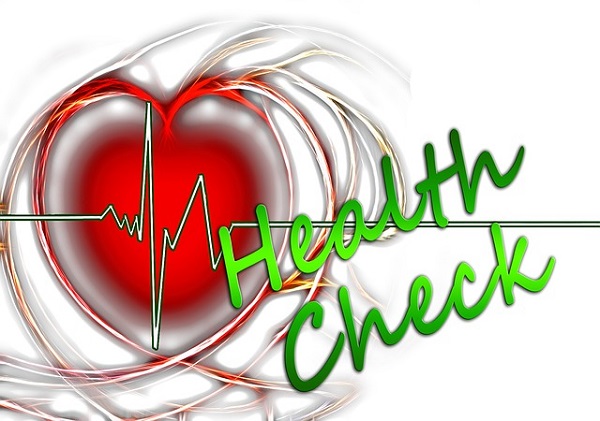
0800 377 7507
Get in touchRemember a family health check!
The end of the summer is approaching and with that means the start of school, back to work and generally settling back into a busy time of year ahead of Christmas. So, to give yourself plenty of time and in a bid to be organised to avoid last minute stress, make sure you and your family are booked in for the necessary health checks. MOLLY MAID, the domestic cleaning professionals, have put a list of health check appointments for you and your family to remember to book ahead of the busy Autumn.
It’s really important to organise your annual health check and screening as the earlier you detect any change, the more likely you are to detect any change or disease in their infancy. Here are some of the recommended screenings based on factors like age and family history that you should be having:
- Blood pressure: This should begin at age 18 and continue.
- Cholesterol: This should begin around age 20 and then continue.
- Weight monitoring: This should occur at every health check appointment including a Body Mass Index.
- Urine test: This will identify if you have any sugar in your urine, kidney stones, urinary tract infections and potentially any problems with your kidney or liver.
- Skin exams: Your doctor should monitor any moles or freckles at a health check and see if there has been any change, especially if they have been hurting or itching. Should occur during every annual health check. Make sure to ask your doctor to look at new moles or freckles, especially if they’ve been hurting or itching.
- Screening for colon cancer: These are coming at the age of 50 and include screenings with fecal occult blood testing, sigmoidoscopy, or colonoscopy.
- Screening for coronary heart disease in individuals with strong family history and/or risk factors
Women’s Health
- Breast Exams: This should be routing and should begin at age 18, or earlier if a girl is taking hormones like birth control.
- Pap smears and pelvic exams: There is a much greater awareness of the necessity of woman having Pap smears, but it’s equally important to have them on a regular basis. Recommended frequency varies based on age, sexual history, and the presence of viruses like HPV.
Men’s health
- Screening for testicular cancer: This should include monthly self exams at home from an early age.
- Screening for prostate cancer: This starts to happen once you hit 40 years and over.
Other essential appointments:
Ophthalmologist: Everyone in the family should be getting their eyes tested regularly. Those under the age of 16 should have them tested every year and thereafter, every two years. An eye test is not just about getting a new pair of glasses – it’s a vital health check for your eyes and your general well-being. An eye test can often pick up on eye diseases such as glaucoma, the second most common cause of blindness which can be prevented. It can also spot diseases such as diabetes and high blood pressure. If you have diabetes or high blood pressure, you need to have regular check-ups to make sure your retina is not damaged and to prevent your vision from getting worse.
Dentist: As with our eyes, we all need to take great care of our teeth and this is where a regular health check (every 6 months) is essential for the maintenance of healthy teeth and gums. They will often clean your teeth too and check for gum disease, plaque, cavities and other potential issues including lymph nodes, mouth cancer and infection.
Jabs: It’s a good idea to check your vaccination or immunisation record every year, particularly that of your children as they tend to have lower dose vaccinations which need topping up. Even if you were fully vaccinated as a child, the protection from some vaccines you received can wear off over time. You may also be at risk for other diseases due to your age, job, lifestyle, travel, or health conditions. Vaccines not only protect you, but reduce the chance you’ll spread illness to other people, like children who are too young to be vaccinated or adults who have weakened immune systems.
Pets: Don’t forget about family pets. They too need vaccinations to help them lead a healthy life, so take them to their vet for a health check and for any vaccinations.
Stay healthy by having an annual health check!
